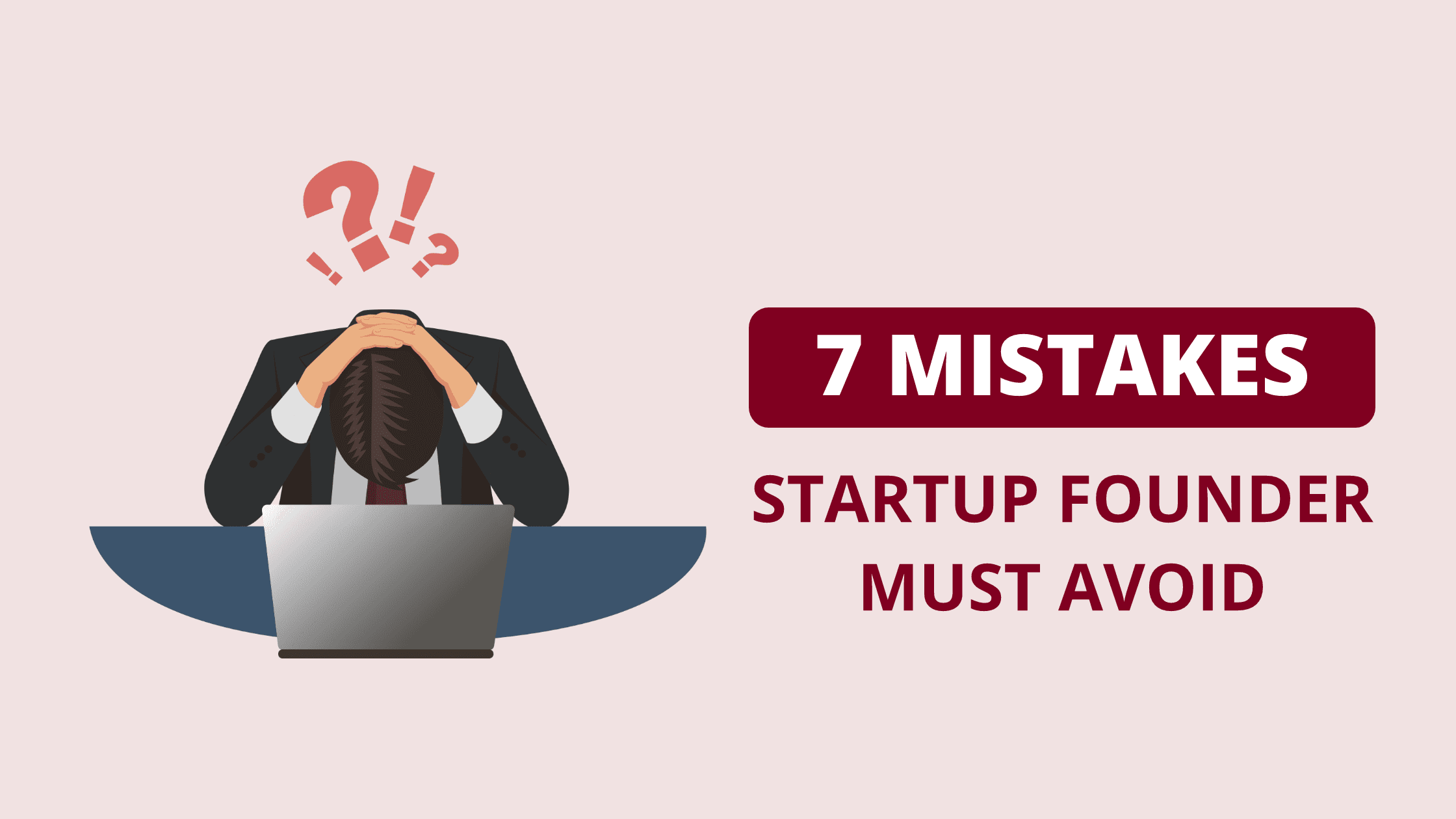Are you an entrepreneur or thinking of walking the path of a startup? Reading this blog points at the fact that you are nervous about messing up this new venture. You are not wrong with your worries. A study by IBM Institute found that 90% of the Indian startups fail within the first five years of inception.
These numbers are nerve-wracking. However, fret not! While the success rate of startups in India is meager, you can achieve great heights by avoiding certain startup mistakes.
Seven startup mistakes to stay wary of:
As a startup owner, I understand the difference between getting started and getting started properly. I will attempt to walk you through seven startup mistakes you must avoid, ensuring that your startup never stops once it starts!
Plan of Business
“A goal without a plan is just a wish” – having no good plan of business is as good as having no business. It is impossible to succeed if you do not know where you are going and what you are trying to achieve. Thus, knowing the ins and outs of your venture, understanding your product or service, and the market potential is of utmost necessity. A startup cannot happen on a whim! It requires careful planning, execution, and thorough evaluation to avoid sneaky startup mistakes.
Herein, it is essential to investigate the pros and cons and prepare for the worse. A carefully planned business has a lesser chance of failure since the preparation and precautions act as a safety net.
Market Research
In a startup, a business plan can only bring you success if you have done proper research. It is as simple as knowing a battlefield – the strengths and weaknesses of your competitors, earlier strategies that worked or failed, your consumers and what they prefer, and the current trend. Thus, studying a market lessens the possibilities of startup mistakes significantly.
It involves studying the market potential and when the launch of a product or service offers maximum profit. Overall, also paves the way for marketing the same to potential consumers.
Financial Planning
One of the most common startup mistakes that can leave a startup penniless is not keeping track of the pennies in your pockets. In simple words, every startup requires a financial plan. Proper investments and avoiding unnecessary expenditures are essential for a startup to grow. Finance is what keeps any new venture afloat, and without the required funds, the lifeline of a startup is as good as zero. Money management is thus the key to growing a startup quickly and efficiently.
It is critical to understand that ‘if you take control of your finances today, you won’t be a victim of them tomorrow.’
Team Building
As the saying goes, ‘too many hands spoil the broth,’ and ‘A rotten apple spoils the lot.’ Both the expressions are appropriate when it comes to startup mistakes owing to team building. A startup is built on the backbone of a capable team and the profile they handle.
In a startup, every member has a huge role to play and must be selected accordingly. Since funds are limited and work is overwhelming, the employees hired must not only be great at their job but also dedicated and invested.
Employees need to understand their value in the company and must be compensated for their demanding work. At times, they even need to wear multiple hats to ensure the smooth working of a company ensuring that both the leadership and the workers are on the same page and have cordial relationships. This helps build the right team that can help uplift the organization and the individuals involved in the process.
Understanding Consumers
No consumer is equal to no sale and no survival. As startup mistakes go, not understanding the needs and requirements of consumers costs a business a big deal. Consumers are the ultimate ace when it comes to a startup or any business for that matter.
Knowing your customers helps to understand the scale of a target – how big or small it is, what they like or dislike and how a product or service can be marketed to reach the targeted audience. Herein, consumer feedback plays a significant role. Through this, consumers become a part of product development as they are the ones spending their hard-earned money on purchases and hence can make or break it for you.
Quality network
A startup cannot run on the effort, planning and execution of one person alone. For a startup to grow, an excellent webbed network of influential people is required which can consist of your mentors, friends, other startup owners, consumers, affluent business owners, media personnel and so on. No connection is a bad connection in this regard.
Networking helps in gaining a base for a proper market that can guide you in the right direction of growth. Even if your immediate connection does not know the ropes, they might know people who know. Thus, keeping a quality network helps in curbing major startup mistakes.
Know Competitions
In dramatic terms, keep your friends close and your enemies closer. Not knowing your competition is a startup mistake you do not wish to commit in a new venture. It is important to know whom you or your business is challenging. Knowing their work will help you do something different that can attract consumers. Not only that, but it will also help you understand their weaknesses and stop you from repeating them.
To Summarize:
Thanks to my journey from a freelancer to a startup founder, I learned a lot of things before starting my venture. But I understand that not everyone has that kind of exposure and first-hand experience. I just wish that no person starts walking on a startup path without prior knowledge and preparedness. Stay connected with me on my blog and Instagram/Twitter.
































